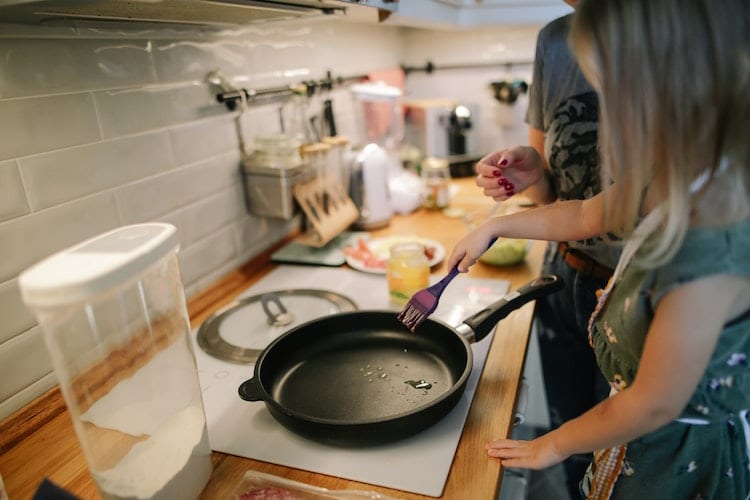Stop Burning Money When You Cook: How To Save Cash In The Kitchen

 Disclosure: We’re letting you know that this post contains sponsored links which The Smart Wallet receives compensation for, which may impact their order of appearance. This site doesn’t include all available offers.
Disclosure: We’re letting you know that this post contains sponsored links which The Smart Wallet receives compensation for, which may impact their order of appearance. This site doesn’t include all available offers.
Are you making the most of your meals? Odds are you might be wasting nearly as much as you eat. Thirty to forty percent of all food in the U.S. is thrown away, according to the Department of Agriculture. Not only does that mean we don’t save food, we waste cash too.
Considering the average American household spends about $4,000 every year on groceries, you could be throwing away more than $1,500 every year.
Food waste is a major issue, especially because it leads to a lot of money waste. It may feel harmless to toss leftovers or accidentally let something expire, but you could be costing yourself thousands in the long run.
Here are some tips to turn your kitchen into a money-saving machine.
Stick To A Plan
All food waste starts at the grocery store. Before you hit the supermarket, plan out your meals for the week and buy exactly what you need to get.
Keeping a strong plan and sticking to a list will help you stick to a budget too. By making sure you only buy what you’re sure you’ll need, nothing goes to waste.
Get Cashback After Shopping
While you’re sticking to the plan, be sure to download Ibotta to get cash back on the groceries you were going to buy anyway. Open the app, add cash back offers, go shop and then redeem just by uploading a picture of the receipt!
To maximize your cash back even further, upload that same pic of that receipt into Fetch Rewards to earn points that’ll add up to gift cards. Just shop like you normally would and Fetch will reward you.
With these 2 apps together and a good shopping list, it might even feel like you’re getting paid to buy groceries.
Stay Organized
Now that you have all your groceries home, stocking your fridge and pantry is the next step. Keeping your shelves well maintained is an easy way to make sure you’re not wasting any food or money.
It can be easy to let something sit in your fridge for weeks and forget as it goes bad and things pile up in front. Keep your fridge and pantry organized and your wallet will thank you.
Food storage is a key component of making sure nothing goes to waste, too. Not all foods can be stored or preserved in the same ways, so knowing how to best stash everything in your kitchen will save you major dough.
Keep An Eye On Expirations
If your food goes bad, you have no choice but to toss it in the garbage. But knowing how to tell when food is actually spoiled can save you lots of money.
Obviously, try to eat your food while it’s as fresh as possible, but if you’re stocking up for meals in advance that’s not always possible. Keep an eye on expiration dates and prioritize meals in order to make sure nothing goes bad.
Remember that sell-by and expiration dates are there to guarantee freshness, and are not perfect. Use common sense to see if something is still good past its expiration date and cook away!
Freeze!
If you’re worried about food expiring, the freezer is your safe place. Freezing food as opposed to refrigerating it can increase its life exponentially.
For example, fresh chicken can stay in the fridge for about two days before you need to cook it. Frozen chicken can last a whole year until you need to thaw it and cook.
Mix and Match
If you think leftovers might be going to waste, see what else you can mix your scraps into. Test out new recipes and test how different foods go together.
For instance, any leftover fruit can be turned into a smoothie, tossed into a salad, or mixed with yogurt.
Donate What You Can’t Finish
Even if your family didn’t eat something, a family in need might be able to use it. Local churches, pantries, and food banks all accept donations that can turn into meals for hungry families.
See Also: Tips for Self Starters to Make the Most of Their Kitchen









